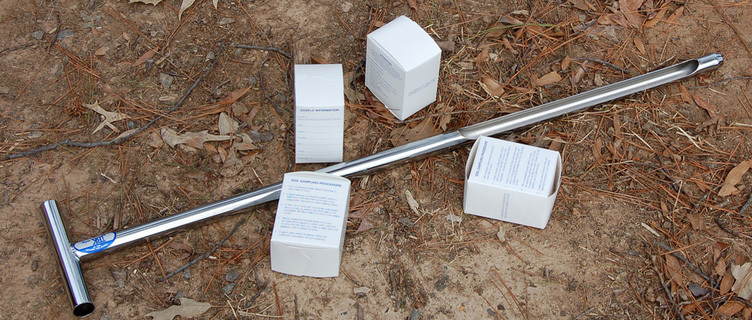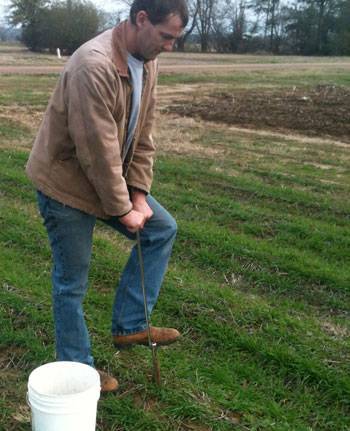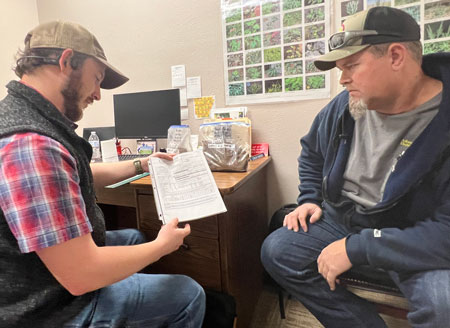Contact
University of Arkansas System Division of Agriculture
Cooperative Extension Service
2301 S. University Avenue
Little Rock, AR 72204
Free Soil Tests for Arkansans

If you are an Arkansas homeowner or landowner and your garden or lawn isn't looking so great, it's time to see how your soil is doing.
Soil testing can be done anytime, but the best time is in the fall or in the spring before the lawn greens up.
We offer free soil testing to Arkansans. If you are out of state, check with your state's land grant university for a similar free service.
To get started, first you need to take your own soil sample.
How to Gather Your Soil Sample
 Check out the step by step video and read the instructions below.
Check out the step by step video and read the instructions below.
Use the following procedure in collecting your soil sample:
1. Rake aside mulch or surface litter like leaves.
2. Take soil with a soil probe or shovel from at least 12 spots in each area to obtain a representative sample. A zigzag sampling pattern is preferred. Fertilizer and lime recommendations are no better than the sample taken.
3. Take samples in gardens, lawns, and around shrubs to a depth of about 4 inches and for mature fruit trees at a depth of 12 inches.
4. Mix soil thoroughly from a sample area. Keep different areas separate. Discard rocks, gravels and roots.
5. Allow the soil sample to air dry. Spread the sample on newspapers or large paper bags for a couple of days. Do not heat the sample in an oven to speed drying.
6. Remove one pint for the laboratory sample and place in a clean container or zip
top bag. Label each sample with a name that you would recognize.
7. Bring sample(s) to your local County Extension office. Office hours are 8 a.m. to 4:30 p.m. Monday through Friday.
Tips include:
- Sample areas around shrubs separately from turf.
- If you have a large lawn or garden, sample areas separately that have been managed differently or will be managed differently.
Need help? Contact Your County Office
How much does it cost?
For Arkansas Taxpayers, there is no fee for us to process and run your samples. Out of State samples will be charged $10.00 per sample.
Download our guide on how to test your soil
Additional Resources
- Step by Step Soil Testing
- Take a Virtual Tour of the Soil Testing Lab
- N-STar (Nitrogen-Soil Test for Rice) Services